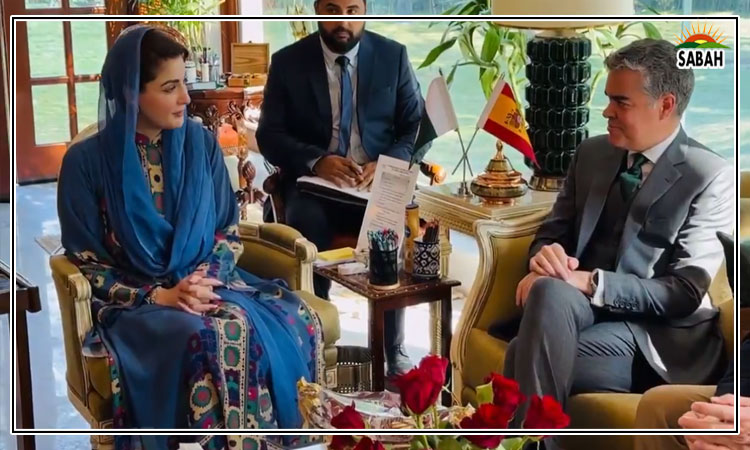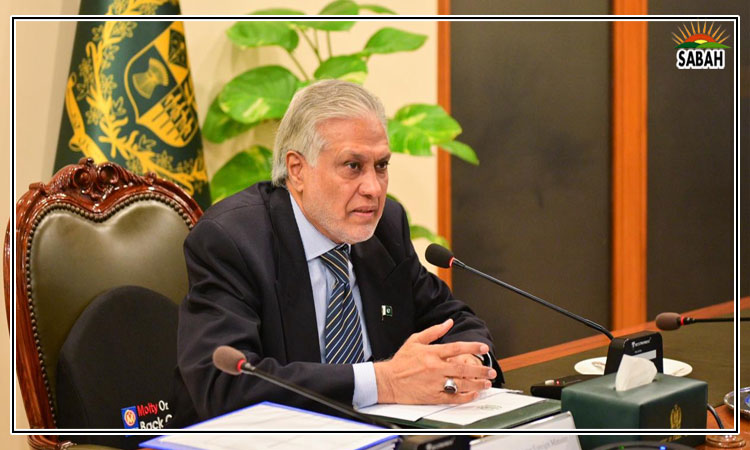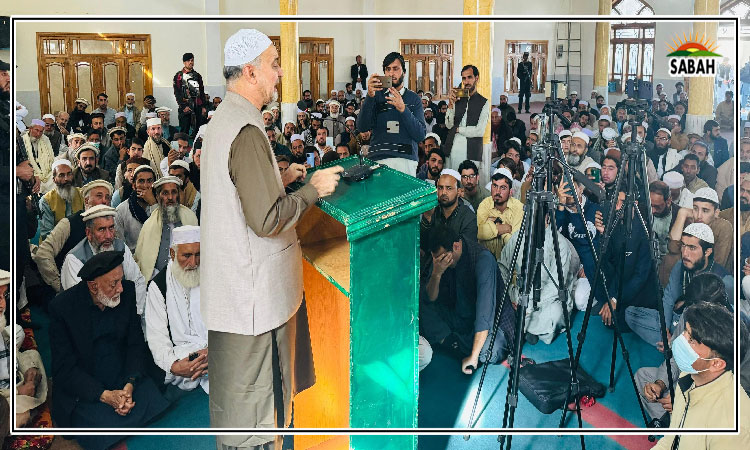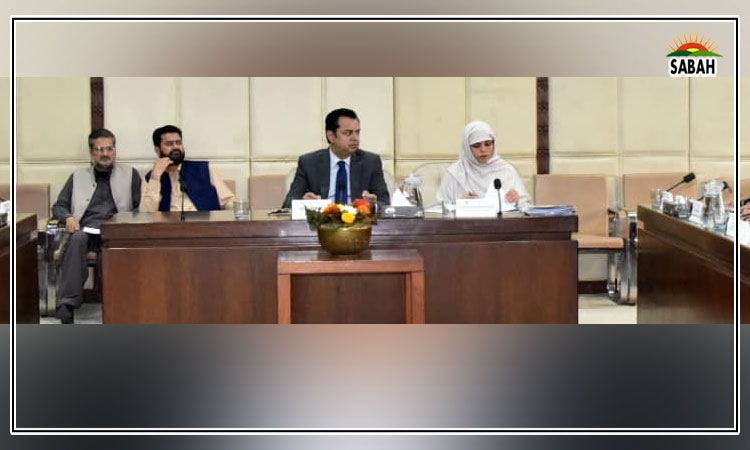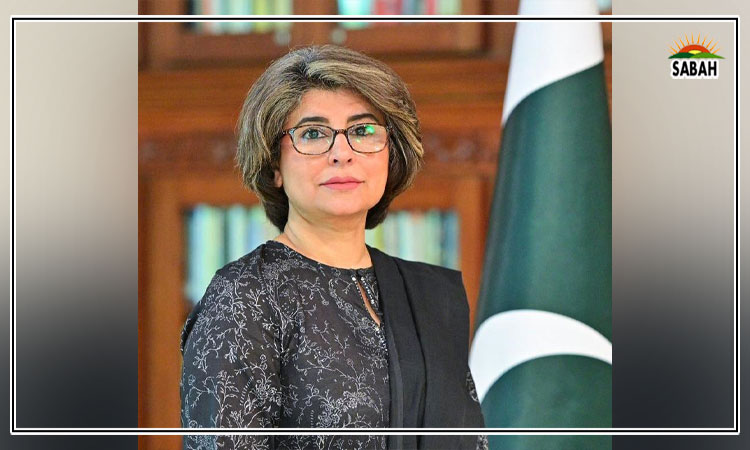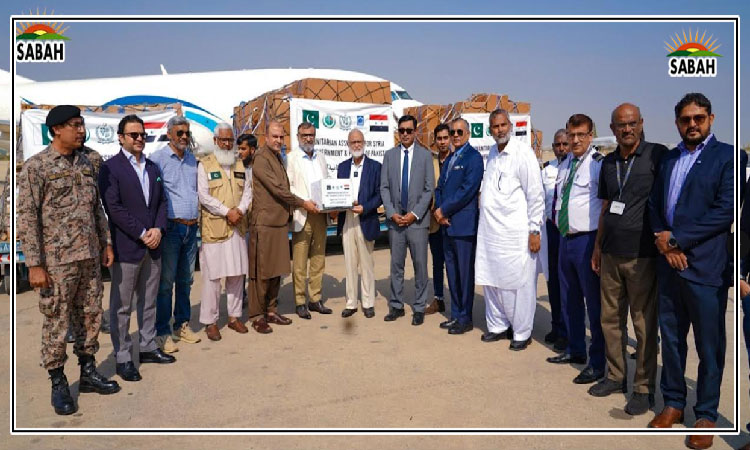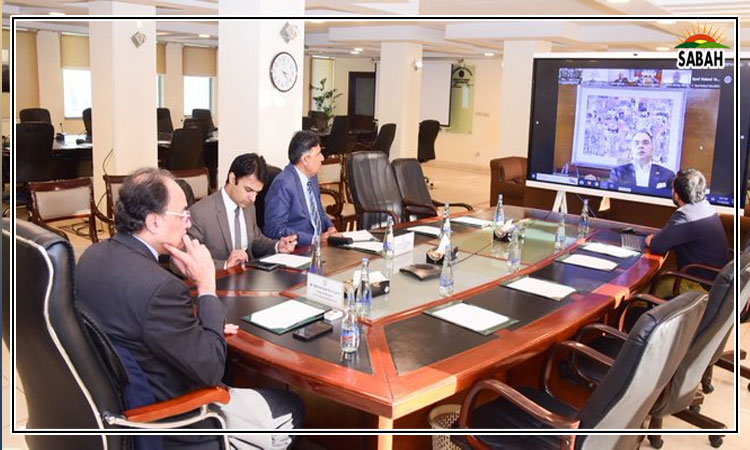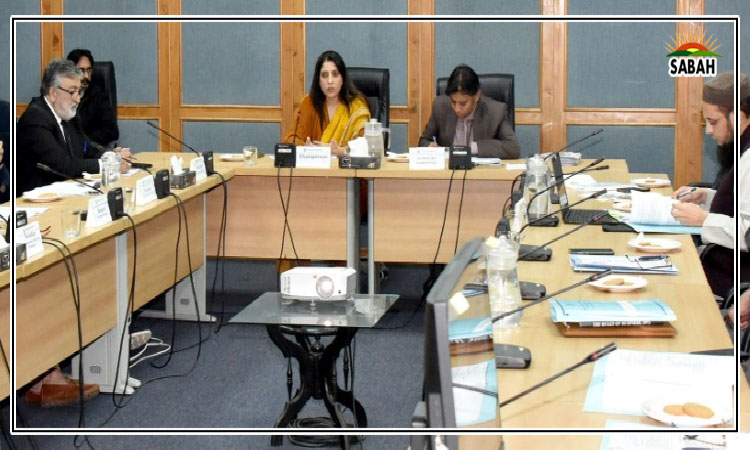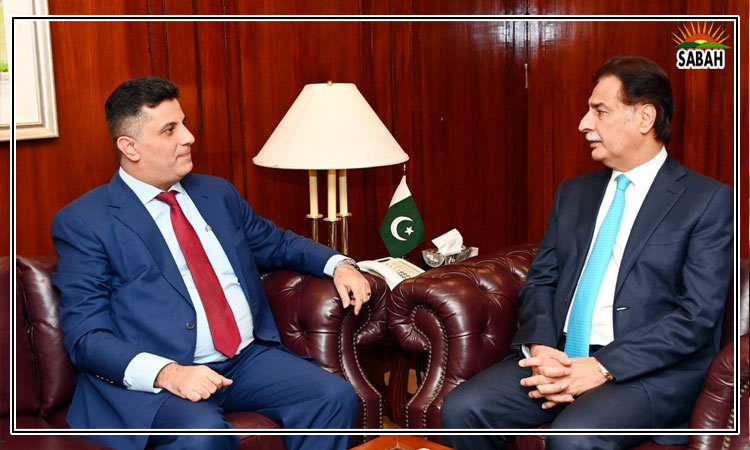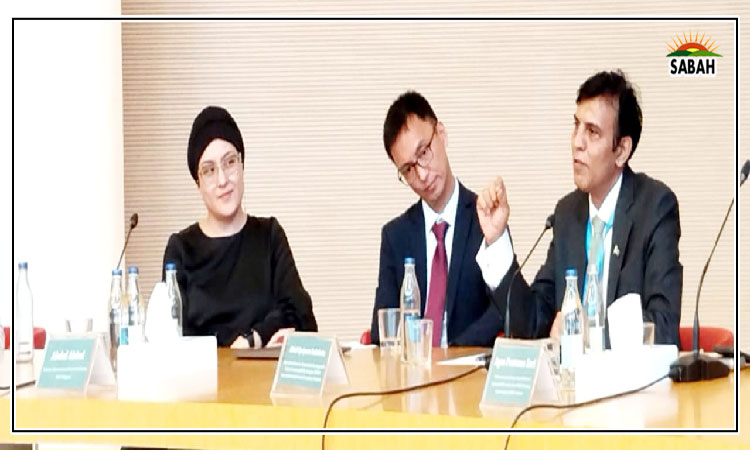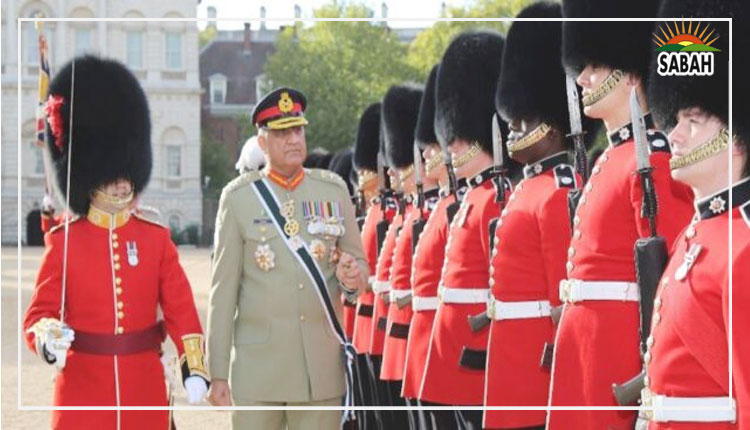No one is born with professional knowledge, it has to be acquired through constant pursuit: COAS General Qamar Javed Bajwa
LONDON, August 12 (SABAH): Chief of Army Staff (COAS) General Qamar Javed Bajwa has stressed to preserve the vitality, relevance and internal sense of impartiality in multilateral institutions, maintain consensus on the collective defense of global commons and uphold the prestige of international law to maintain the world peace.
COAS General Qamar Javed Bajwa was addressing the passing out parade of Regular Commissioning Course of Royal Military Academy as special guest at Sandhurst in England on Friday. The Army Chief is the first ever Pakistani dignitary, who has been invited at Royal Military Academy as a Special Guest.
General Qamar Javed Bajwa said the battlefield of tomorrow would be characterized by extreme precision, lethality and transparency which would be particularly challenging for military leaders, especially young officers in the battle, both mentally and physically.
He said his presence there today bears testimony to the deep-rooted relationship that exists between Pakistan and the United Kingdom.
The COAS said similarly, the bondage between the two armed forces is uniquely special as well, forged on the battlefields of Great Wars and kept alive over the years through exclusive regimental affiliations and close professional contact in training and a myriad of other military activities.
General Qamar Javed Bajwa said primary reason for armed forces to exist today, should not be to prosecute wars, but to ensure that they do not take place.
COAS General Qamar Javed Bajwa said: “Mankind’s destiny, more than ever before, hinges on our collective capacity to come together and take the route of peace and cooperation instead of conflict, communication instead of clash and multilateralism instead of self-preservation.”
General Bajwa expressed his gratitude for representing the Queen, terming it a “unique honour and a great privilege.” He congratulated the passing-out cadets and their families for successfully completing their training course. “Your alma matter is, without a doubt, one of the finest military institutions in the world which have produced some of the great military leaders that this world has seen,” he said, adding that graduating from Sandhurst is a great honour and pride.
“Two Pakistani candidates are also graduating and I want to share that I am as proud of all of you as I am of the two of them,” he maintained.
He said: “My presence here is a testimony of the deep-rooted relationship that exists between Pakistan and the United Kingdom based on mutual respect and shared values which have been carefully nurtured by both the nations over many decades.”
“I am sure that this relationship will stay in greater heights in times to come,” he added.
Terming the bond between the two-armed forces “unique”, the chief of army staff said: “Similarly the bondage between the two-armed forces is uniquely special as well forged on the battlefield of great wars and kept alive over the years through exclusive regimental affiliations and close professional contact in training and a myriad of other military activities.”
Addressing the cadets, the COAS said that this day marks the beginning of their formal military service, which is the most “distinguished and the noblest of professions”.
General Qamr Javed Bajwa, while lauding them for their success, reminded the cadets of the responsibilities and the great expectations associated with them by their alma-mater and respective nations.
He said: “The journey that awaits you is challenging as well as exciting. The demands of professional military service will be much high as you grow in service.
“You need to equip yourselves with lofty attributes of leadership, with clear sense of purpose, to gain the respect and trust of your subordinates. It is only through the development of unwavering trust and confidence that you can instill Esprit-de-Corps in your subordinates under command, which will hold you together in times of crisis.”
The chief of army staff further added that no one is born with professional knowledge, it has to be acquired through constant pursuit.
“Without it, you cannot achieve professional competence, which in turn is the hallmark of successful military leadership,” he said.
“As a leader today, you need to have courage and ability to take difficult decisions and then accept full responsibility. Correct decision-making requires competence and confidence, which can only be acquired through high-class military education, rigorous training and continuous study of military history,” he added.
COAS General Qamat Javed Bajwa quoted Sir Basil Liddle Hart saying “an officer who has not studied military history as science, is of little use beyond the rank of a captain”.
“You must also understand that persona of a just and impartial commander, who exhibits merit in the dispensation of reward and punishment, is the one who will earn unconditional loyalty and obedience of them under command,” he asserted.
The chief of army staff went on to say that as a direct consequence of the onset of the fourth industrial revolution, dual-use technologies and niche capabilities led by artificial intelligence are fundamentally altering the character of future war.
“The battlefield of tomorrow would be characterised by extreme precision, lethality and transparency which would be particularly challenging for military leaders, especially young officers in the battle, both mentally and physically,” he warned, adding that this “future is inevitable”, and each one of the cadets would have to adapt to new realities in the technological domain to ensure a successful outcome in the battle.
He identified the realities on the battlefield that are immune to the ebb and flow of technological advancements and would never change; which include:
The value of keeping up a brave face in front of your troops, when you are as shattered and frightened inside as all of them.
The contagious energy that you would instill in your troops when you would lead them by example and not merely by words. Remember, when a lot of lead is flying in the air on the battlefield, an officer never says advance, rather always says follow me.
The importance of keeping the well-being of your troops ahead of your own is the hallmark of a successful military leader.
Every officer cadet should remember that the safety, honour and welfare of their country come first, always and every time. Your own ease, comfort and safety come last, always and every time
He went on to say that in the interest of world peace, “we must strive to preserve the vitality, relevance and internal sense of impartiality in multilateral institutions, maintain consensus on the collective defense of global commons and uphold the prestige of international law.”
“In case we fail to do that, I am afraid we may end up destroying the beautiful world, that we have,” he warned.
General Qamar Javed Bajwa arrived in the United Kingdom on an official visit on early Thursday morning.
The original Royal Military Academy was established in Woolwich in 1741 to train officers for the Artillery and Engineers. A similar institution was founded for training Cavalry and Infantry officers in 1802 at High Wycombe. Named the Royal Military College (RMC), which subsequently moved into a new and purpose-built facility at Sandhurst in 1812. The RMA and RMC merged after the Second World War to form The Royal Military Academy Sandhurst.
The sovereign’s parade marks the culmination of 44 weeks of training on the commissioning course, which must be passed by all officers commissioning into the regular army. The course is split into three terms of 14 weeks, with a further two weeks of adventurous training.
The course covers activities such as military theory, academic study, behavioural sciences, physical training and field exercises where military skills and leadership are developed and tested under arduous conditions over multi-day periods on defence training areas across England, Wales and with partnering American Forces in Grafenwöhr, Germany.
According to the UK Defence Ministry, CC213 contains 208 British Officer Cadets and includes 41 International Officer Cadets from 26 countries: Afghanistan, Albania, Bahrain, Egypt, Germany, Fiji, Georgia, Ghana, Iraq KRI, Jordan, Kenya, Kosovo, Lebanon, Montenegro, Nepal, Nigeria, Oman, Pakistan, Qatar, Rwanda, Sierra Leone, Sri Lanka, United Arab Emirates, Ukraine, The United States of America and Zambia. At Sandhurst, there are currently a total of 122 International Officer Cadets. Since 1947 over 5000 from 131 different countries (including 7 current serving heads of state) have trained at Sandhurst.
Cadet Muhammad Abdullah Babar and Cadet Mujtaba from Pakistan Military Academy participated in the course.


